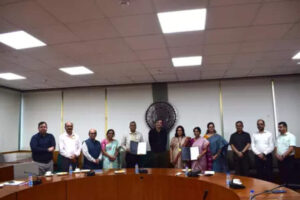
UAE Implements New Training Framework in Universities to Meet Labour Market Needs, ETEducation

The UAE’s Ministry of Higher Education and Scientific Research (MoHESR) has announced a new regulatory framework for practical training in universities, seeking to better align academic outcomes with labour market requirements and strengthen the role of higher education in national development.
Under Ministerial Resolution No. (173) of 2025, all higher education institutions (HEIs) in the country will be required to implement structured, transparent, and accountable training programmes that combine classroom learning with real-world experience. The decision, officials say, reflects the UAE’s push to build a competitive, knowledge-based economy while ensuring graduates are prepared for fast-evolving industry demands.
Dr. Mohammed Al Mualla, Undersecretary of MoHESR, said the resolution underscores the Ministry’s commitment to “advancing practical training, ensuring graduates gain skills aligned with key economic sectors.”
“Practical training bridges theory and real-world experience, equipping students with the skills needed to succeed and innovate in the workforce,” he said. “The resolution provides clear governance frameworks, ensuring the programmes offer structured, hands-on training that prepares students for the future.”
The new framework requires universities to partner with both public and private sector organisations to deliver meaningful training opportunities. It obliges institutions to ensure training environments are safe and relevant, supervisors are experienced and qualified, and student progress is monitored through regular assessments and field visits.
Institutions will also be mandated to develop formal agreements with training providers, maintain detailed records, and report regularly to ensure compliance with quality standards. By embedding stronger governance and oversight, the Ministry aims to raise the consistency and impact of training programmes across the country.
The reforms support the UAE’s broader vision of building an innovation-driven economy underpinned by skilled national talent. By formalising links between universities and industry, the framework mirrors global best practices seen in countries with strong vocational and applied learning systems, such as Germany and Singapore.
For the UAE, the move represents a step towards closing skills gaps, enhancing graduate employability, and ensuring its higher education sector remains globally competitive. Officials believe the emphasis on practical training will also help graduates adapt to the changing world of work, where digital fluency, problem-solving, and applied knowledge are increasingly valued alongside academic credentials.
Source: WAM>
Source link



